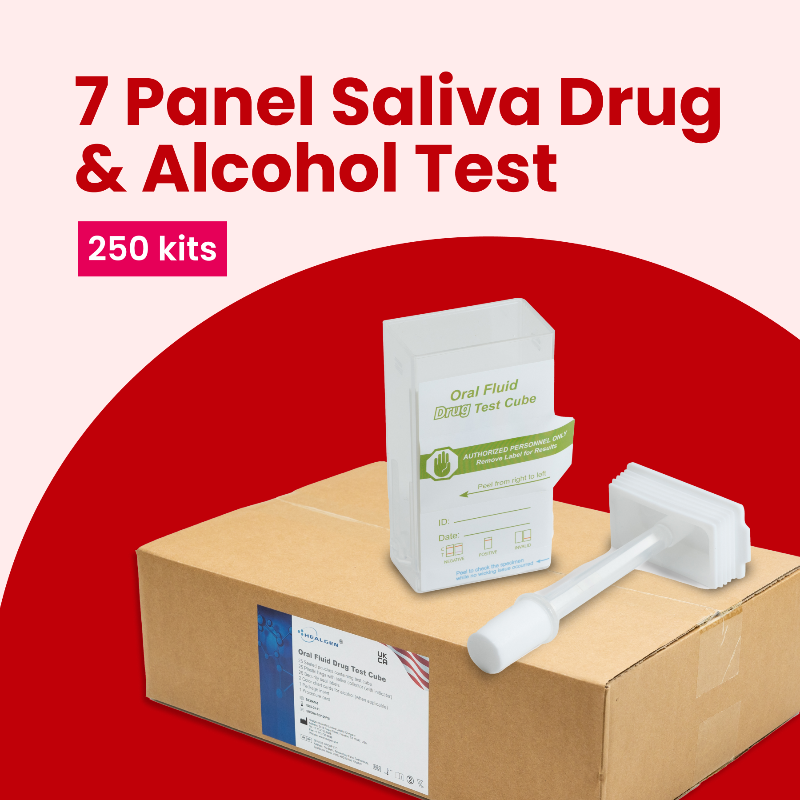Exploring Various Workplace Drug Testing Methods
Keeping a workplace safe and drug-free is important for both employers and employees. In the UK, many companies use pre-employment and workplace testing to make sure staff can perform their duties safely and responsibly.
This guide explains everything about UK testing laws, types of drug tests, and how to choose the right drug testing kit for your business.
Understanding UK Regulations for Workplace Testing
In the UK, there is no law requiring all employers to carry out testing. However, under the Health and Safety at Work Act 1974, employers must protect the safety of their workers and the public.
Scfreen testing is often used in jobs where safety is critical, such as:
- Transportation and logistics
- Construction and engineering
- Healthcare and emergency services
Key Legal Points:
- Employee consent is required before any test.
- Clear policy: The employer must have a written drug and alcohol policy.
- Privacy: All testing must respect confidentiality and data protection laws.

Types of Workplace Testing Methods
Different testing methods are used depending on how quickly results are needed and what kind of substances are being checked.
1. Urine Testing
The most common method in UK workplaces.
- Detects a wide range of substances.
- Can identify drug use that happened up to several days earlier.
- Used for pre-employment and scheduled testing.
- Slightly invasive but very reliable.
2. Saliva (Oral Fluid) Testing
- Quick and non-invasive
- Ideal for random checks or post-incident testing.
- Detects recent use within hours to 2 days.
- Perfect for onsite workplace testing.
3. Hair Follicle Testing
- Used to detect long-term drug use.
- Can show a pattern of use over the past 90 days.
- Common for executive roles or court-related cases.
Choosing the Best Workplace Testing Kits in the UK
Selecting the right testing kit helps maintain workplace safety and compliance. Here are the top options used by UK employers:
1. Saliva Test Kits
- Easy to use and requires no special equipment.
- Results in 5–10 minutes.
- Detects multiple substances like cannabis, cocaine, opiates, and amphetamines.
- Best for onsite testing and random checks.
2. Urine Test Kits
- Covers a broader range of drugs.
- High accuracy (up to 99%).
- Ideal for pre-employment or routine testing.
- Slightly more invasive but widely accepted.
3. Laboratory Test Kits
- Samples are sent to a certified UK lab.
- Used for detailed analysis or confirmation testing.
- Considered the gold standard for accuracy.

How Often Should Workplace Testing Be Done?
The frequency of testing depends on your industry and company policy, and common practices include:
- Pre-employment: Before hiring new staff.
- Random testing: Unannounced checks to maintain safety.
- Post-incident testing: After accidents or near misses.
- Routine testing: Scheduled tests every few months in safety-critical sectors.
Employers should always inform staff about the frequency and purpose of testing in advance.
Drug Use Trends in UK Workplaces
Studies show that drug use among UK employees remains a concern, especially in high-stress or shift-based jobs. Regular workplace testing helps:
- Reduce accidents and absenteeism.
- Improve focus and productivity.
- Build a culture of responsibility and trust.

How Accurate Are Testing Kits?
Modern UK-approved testing kits are highly reliable.
- Accuracy: Up to 99%
- Speed: Results in minutes.
- Compliance: CE-marked and fully compliant with UK safety standards.
Why employers trust these kits:
- They undergo strict quality control.
- Provide clear, easy-to-read results.
- Backed by thousands of successful workplace screenings across the UK.
Frequently Asked Questions (FAQ's)
Q: Is drug testing required for all office jobs?
Ans: No. testing is not mandatory for most office roles. However, it is essential in safety-sensitive industries like transport, construction, or healthcare.
Q: Do employers need employee consent?
Ans: Yes. Testing without consent can lead to legal issues. Employees must be informed and agree to testing beforehand.
Q: Which is better, onsite or laboratory testing?
A: 1. On-site testing gives fast, reliable results within minutes.
2. Laboratory testing provides detailed confirmation when accuracy is critical.
What Employees Should Know
If you’re about to take a pre-employment test:
- Read your employer’s drug policy carefully.
- Ask how your data and results will be handled.
- You can refuse a test, but it may affect your job offer in some industries.

Pre-employment and workplace testing in the UK aims to create a safe, fair, and productive work environment.
By using the right testing kits, following legal guidelines, and maintaining transparency, companies can protect both their employees and their reputation.
If you’re an employer, explore reliable, UK-approved saliva and urine testing kits to ensure compliance and safety across your organization.
Collections
-

Buy Breathalyser Alcohol Tester Online In UK
We offer a full range of breathalyser alcohol testers in the UK that...
-

Buy Workplace Alcohol Testing Kit In UK
We have an extensive selection of workplace alcohol and drug solutions, including...



